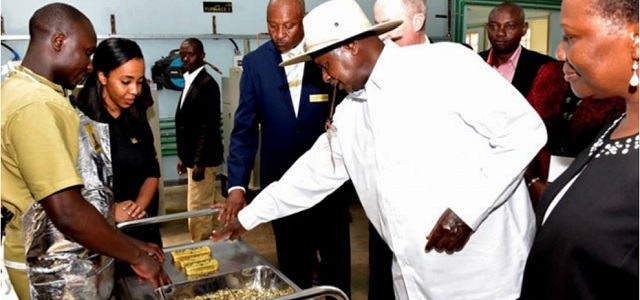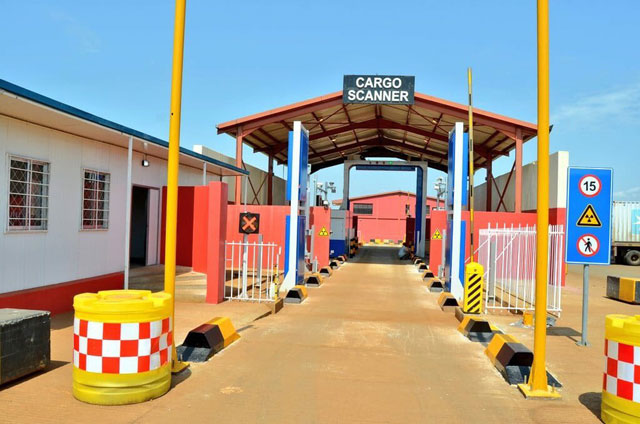
New report sheds light on illicit activity in Uganda
Kampala, Uganda | RONALD MUSOKE | A new report analysing the scope and characteristics of global trade-based money laundering has found that the illegal activity poses complex problems for law enforcement and undermines development; especially in poorer countries like Uganda.
The study, ‘Trade-Based Money Laundering: A Global Challenge,’ notes that “when trade-based money laundering goes unchecked, it has adverse effects on economies and societies as it perpetuates criminal activities …corruption, and tax evasion.”
The study was co-authored by the Washington DC-based Global Financial Integrity (GFI), the Advocates Coalition for Development and Environment (ACODE), a Kampala-based policy thinktank, Transparency International (Kenya) and Fedesarrollo (Colombia).
The researchers define trade-based money laundering as “disguising the proceeds of crime (by) moving value through the use of (legitimate) trade transactions”
The report provides an in-depth analysis of the most common trade-based money laundering methods, which include over- and under-invoicing of goods, misrepresentation of goods being shipped, multiple invoicing of goods, over- and under-shipment or phantom shipments, the black-market money exchange, and the use of informal value transfer systems. The report notes that misinvoicing is the most common method, representing 63% of cases.
According to the study, a comprehensive mapping of known court cases worldwide from 2011 to 2021 identified just US$60 billion in money laundering. However, other estimates put trade-based money laundering in the hundreds of billions, or even trillions of dollars annually.
Onesmus Mugyenyi, the Deputy Executive Director of the Advocates Coalition for Development and Environment (ACODE) led the research team in Uganda. He told The Independent on Feb.09 that countries like Uganda are failing to raise adequate tax revenue not because they do not have the resources but because the entities that are supposed to pay taxes are not paying thanks to this illicit activity.
Gold tops list of vulnerable commodities
The study found that, in Uganda, gold is one of the most vulnerable commodities that are susceptible to trade-based money laundering schemes because it is a cash-intensive industry with limited oversight.
“The origins of gold are hard to trace; this makes it easy to, for example, co-mingle smuggled gold with legally mined gold,” Mugyenyi said. He explained to The Independent that the researchers in Uganda zeroed-in on gold because it has in recent years raised a lot of questions.

“When we checked with Uganda Revenue Authority (URA), the record they had, in terms of taxes, the revenue was so minimal, what was being declared as gold produced (in Uganda) was also minimal and when we checked with Bank of Uganda, the information they had was not tallying with the record at URA.”
“So, several questions arose. Uganda is exporting gold from where (sic)? Nobody could offer any satisfactory answer; we also saw a lot of imports of gold.”
These were red flags for the Ugandan researchers. Mugyenyi told The Independent that commodities that are of high value but are transacted in smaller quantities are more vulnerable. “This is because such commodities cannot easily be detected as one moves and crosses border points,” he said.
In Uganda, gold has become the country’s leading export product since 2018, overtaking coffee. As of 2020, Uganda’s annual gold exports amounted to US$3.47 billion in value, accounting for 59% of Uganda’s export earnings.
Yet domestic production of gold has not grown comparably. At the same time, Uganda’s US$1.97 billion imports of gold in 2020 do not make up for the difference with the official export figures.
There is also no clear data on the mines from which this gold is sourced within or outside Uganda and Uganda’s central bank estimates that only about 10% of gold exports are mined domestically. These inconsistencies in trade data raise the trade-based money laundering risk profile of the Uganda gold sector.
Mugyenyi said the Ugandan researchers also looked at what Uganda exports and imports from a country like Kenya and found some disparities. He said although the disparity may not necessarily mean that there is trade-based money laundering going-on, it can still be an area of investigation. “It could be about data capture; how the data is captured but it nonetheless raises a red flag.”
“Commodities that are imported as intermediate goods (raw materials used to produce finished products) or can be sold as finished products to other countries also raise concerns because when the businessmen import products as raw materials, they pay less tax but go on to re-export the products to say, the DR Congo.”
“If you analyse the data closely, you start to realise that what was exported was actually a different commodity which means there could have been misinvoicing of a product.”
“If you say you are exporting beans when you are actually exporting gold, then even the taxes you pay will be much less. So, we used these red flags to assess gold, coffee, motor vehicles, pharmaceuticals, sugar, tobacco and even oil (petroleum).”
Mugyenyi says enablers of trade-based money laundering are usually lawyers, accountants, auditors and bankers. He says some of these professionals have no knowledge about trade-based money laundering.
“There are so many suspicious transactions that go through local banks. A person comes in, they have never done any business, they open an account and deposit huge sums of money and nobody cares to find out the source of the money.”
Mugyenyi told The Independent that there is need to sensitize professionals like bankers to understand what is going on since sometimes, they look at some investors with suspicious cash with an innocent eye.
“That is why Bank of Uganda wants commercial banks to report such transactions for investigation; that when you see a transaction of that nature, you need to be alert,” Mugyenyi said. He noted that the perversive nature of corruption in Uganda also makes it difficult to push back trade-based money laundering.
“People know that what’s going on is money laundering but because of corruption, such transactions will not be red flagged; the lawyers, bankers, auditors see them but because sometimes their hands have been oiled, they abet these transactions.”
Global challenge
To better understand the scope and characteristics of the illegal practice, the research team presents a comprehensive mapping of trade-based money laundering cases worldwide during a 10-year period in which cases were identified using official, publicly available sources. Up to 77 countries were affected by this activity. The United States, Mexico, Colombia, China and Hong Kong were among the most-affected states.
In terms of the underlying criminal activity that generated laundered proceeds (offences), the most common included drug trafficking (43% of all predicate offences mentioned), tax evasion/tax fraud (18%), other fraud or scams (7%) and corruption (6%).
The report found that almost any type of merchandise can be purchased to launder illicit proceeds used in trade-based money laundering schemes. The most common included cars/transportation vehicles (24% of all types of products mentioned), metals and minerals (17%), agricultural products (13%), and textiles (11%).
Glimmer of hope
On a good note, it appears, the Ugandan government appears to be fighting back. For example, the Office of the Director of Public Prosecution has developed a manual to help prosecutors, investigators and other law enforcement agencies understand the illicit trade problem and the existing mechanisms for reporting and handling of such cases.
There have also been efforts to enact an anti-counterfeiting goods law. This Bill which aims at combating the importation and sale of counterfeit products was introduced in Parliament in 2015. However, in 2017, a Parliamentary Committee recommended its withdrawal on grounds that there are existing laws to deal with the same issue.
They recommended a review of existing laws and strengthening the capacity of the Uganda Registration Services Bureau (URSB) to address counterfeits.

Meanwhile, the Uganda Revenue Authority recently launched the unit in 2022 to counter illicit trade at the airport. The Air Cargo Control Unit also intends to work closely with other government institutions including the Uganda Wildlife Authority, the Aviation Police and the Aviation Security to improve the detection of illicit goods and the arrest of those individuals trafficking in them.
Section 65 (6) of the VAT Cap 349, Section 15A (6) of the Excise Duty Act 2014 and Section 50 of the Tax Procedures Code Act (TPCA) 2014 imposes penalties for misinvoicing. In addition, the TPCA has been amended to strengthen penalties for false or misleading statement, from Shs 4 million to Shs 110 million in order to help deter misinvoicing.
In 2022, the Uganda Parliament also passed various pieces of legislation to address gaps in beneficial ownership coverage. The Anti-Money Laundering (Amendment) Act 2022 now empowers authorities to levy administrative penalties for failure to comply with beneficial ownership requirements.
The Companies (Amendment) Act, 2022, and the Partnerships (Amendment) Act of 2022 has defined beneficial ownership and requires all companies to keep a register of beneficial owners. In addition, the Cooperative Societies (Amendment) Act, 2022, has also addressed beneficial ownership.
In 2012, Uganda also joined the Global Forum on Transparency and Exchange of Information for Tax purposes and the Organization of Economic Cooperation and Development (OECD)’s Convention on Mutual Administrative Assistance in Tax Matters in 2016. This has expanded the information network of the Uganda Revenue Authority (URA) to 144 jurisdictions worldwide, and consequently, URA’s information exchanges have increased in number.
Through the customs department, the utilization of the Electronic Fiscal Receipting and Invoicing Solutions (EFRIS) directly linked to the Customs System has been implemented and is aimed at reducing forgery. Under this system, the invoice generated at sale in (EFRIS) should match with the sales invoice at exportation.
Other measures include “automated exchange of information between international trade intervening parties through trade initiatives such as the Uganda Electronic Single Window; campaigns to sensitise the traders on adverse effects of trade misinvoicing, training of staff to understand the mechanisms of trade misinvoicing and how to curb it, as well as penalties and disciplinary non-compliant traders.
Revenue points have also been set up in countries such as Kenya, the United Arab Emirates and China where Uganda exports its commodities such as coffee to curb trade misinvoicing. The URA has in particular adopted the use of non-intrusive inspection technology at most entry points into Uganda, helping to address issues of concealment of goods.
It has also operationalized the Bonded Warehouse Information Management System. Furthermore, the URA has set up a science laboratory that will be used to assess imported goods as a quick determinant of their value before levying tax, the report notes in part.
Going forward, the researchers urge governments such as Uganda’s to mount education campaigns to raise awareness about trade-based money laundering and its associated risks.
There is also need to convene inter-agency taskforces, since combating trade-based money laundering requires close co-ordination among numerous government agencies, the researchers add.
“There is also need to implement national beneficial ownership registries as a means to prevent shell and front companies, a common thread in trade-based money laundering cases worldwide,” the report reads in part.
It adds that besides deploying and utilizing new technologies to asses pricing of trade transactions to ensure that information exchange occurs in real time, there is also need to ensure that national anti-corruption strategies cover international trade and ports.
 The Independent Uganda: You get the Truth we Pay the Price
The Independent Uganda: You get the Truth we Pay the Price





